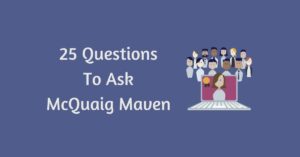Now might seem an odd time to evaluate your Employee Value Proposition, but if you leave it to the upturn, you’ll be behind the curve.

What is the Employee Value Proposition?
“A set of associations and offerings provided by an organisation in return for the skills, capabilities and experiences that an employee brings to the organisation.”
Definition - Minchington 2005
This brings into play the concept that an employee works for much more than salary. In order for an organisation to attract, recruit and retain the best talent, it needs to offer more than a competitive salary. And no, this doesn’t mean laying on Zoom drinks, online yoga or a pool table back in the office.
It means differentiating your organisation as an employer of choice with professional development opportunities that benefit all aspects of your employees personal and professional lives. It means you must add real value for your people if your EVP is to be a successful driver of employee attraction, engagement and retention. It must be relevant and compelling. It may even be unique to your organisation, depending on your sector.
How to create your Employee Value Proposition
Think about what your people really want from their workplace, when pay is off the table. We believe that includes at a minimum:
- Fair, strong leadership
- Organisational resilience and financial stability
- Healthy workplace culture
- The right people in the right roles
- Structured professional development
Fair Leadership
Fair leadership is strong leadership. Leaders who are self-aware and able to self-regulate, tend to behave in a way that is respectful to their people. They neither shout the odds nor shrink away from difficult conversations. They are able to be assertive and give confidence, rather than attack or blame.
Fair leaders inspire trust, loyalty and commitment. This inevitably leads to greater productivity, motivation and resilience.
Organisational Resilience and Financial Stability
An organisation that has a culture of resilience has the tenacity to thrive, innovate and move confidently into the future, no matter how uncertain it may appear. It has the ability to adapt quickly when circumstances force change. Organisational resilience also requires its leaders to have a full grasp of the financial situation to ensure that it is financially secure. This may involve making difficult decisions in times of crisis, as we have seen over that last year. But when people can understand the reasons behind the decision, they are more likely to work with their managers to bring about eventual success.
To do this, leaders must not only understand the language of business finance, but also know how to communicate it effectively and manage the change that may be necessary.
Healthy Workplace Culture
A healthy workplace culture is one where people actually like working together. There may still be challenges and friction but in a healthy workplace they are managed productively and diversity of opinion is valued as a positive contribution. After all, echo chambers rarely lead to creativity and innovation.
People who are positive contributors tend to be easier to work with. They create less disruption in the workplace, thus creating the conditions for a harmonious environment to flourish.
Structured Professional Development
"When you don’t care about your people, your people become careless."
Simon Sinek
No one is a finished product. We can all benefit from personal and professional improvement. Yet when we are busy and stressed, it’s difficult to know where to start. We might know that we need to adjust our behaviours or manage our reactions to challenging situations, but it’s important to avoid falling into the trap of a scattergun approach. All that does is annoy people, waste their time and use up valuable financial resources without achieving any of the desired outcomes. It’s important to add structure your professional development and set milestones to assess the impact of your plan.
Assessments will help an individual to take a good look at and ask questions of themselves. They help to encourage individuals to buy-in to the process. From here it is possible to create a plan for that individual to achieve personal excellence, whether as a stronger leader or develop the skills and confidence to speak with authority at a team meeting.
The Right People in the Right Jobs
It sounds so simple, but how often have you thought a colleague or manager would be happier in another role? Or that you would have been happier in another role? Recognising that the job fit isn’t quite right doesn’t have to be a negative experience. It could be the catalyst needed to make a hugely positive change.
Problems tend to start when hiring managers, through a lack of training, recruit on ‘gut-feel’ of hiring in their own (often skewed) image. Recruiters should take an objective look at the job and then hire for the required personality traits and behaviours to eliminate the bias. Couple this with interview skills training that is designed for hiring managers, and you have a strategy to improve your hiring success.
It’s harder to do this when you have someone already in-role, who isn’t a perfect fit. However, with some reflective professional development and skills training it is possible to improve their performance. It all depends on how you frame the training – this is where one-to-one coaching can make all the difference. When you have the right people in roles that are right for them, your workplace is a much better proposition for your new and current talent.
In terms of the EVP, when an organisation invests in its people and workplace culture, it demonstrates commitment and loyalty, which its people will return with greater productivity.
Contact us
We’re a team who practice what we preach. 2020 was tough, but we made it through with perseverance, motivation and above all by supporting each other. Contact us to find out how we can help you to do the same.
flowprofiler® and associated marks are registered trademarks of Chalmers International Limited | All rights reserved
eqflow® and associated marks are registered trademarks of Chalmers International Limited | All rights reserved
resilienceflow® and associated marks are registered trademarks of Chalmers International Limited | All rights reserved
motivationflow® and associated marks are registered trademarks of Chalmers International Limited | All rights reserved





